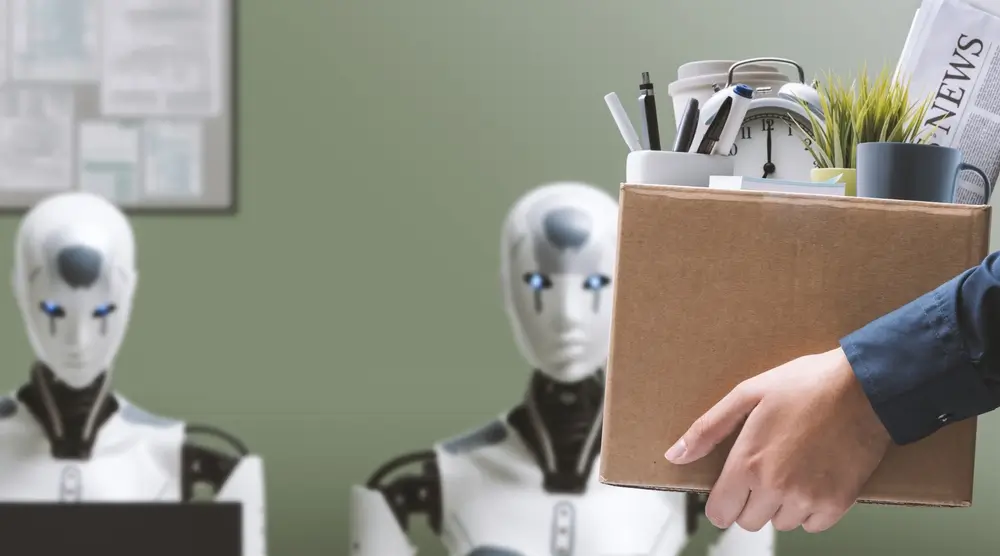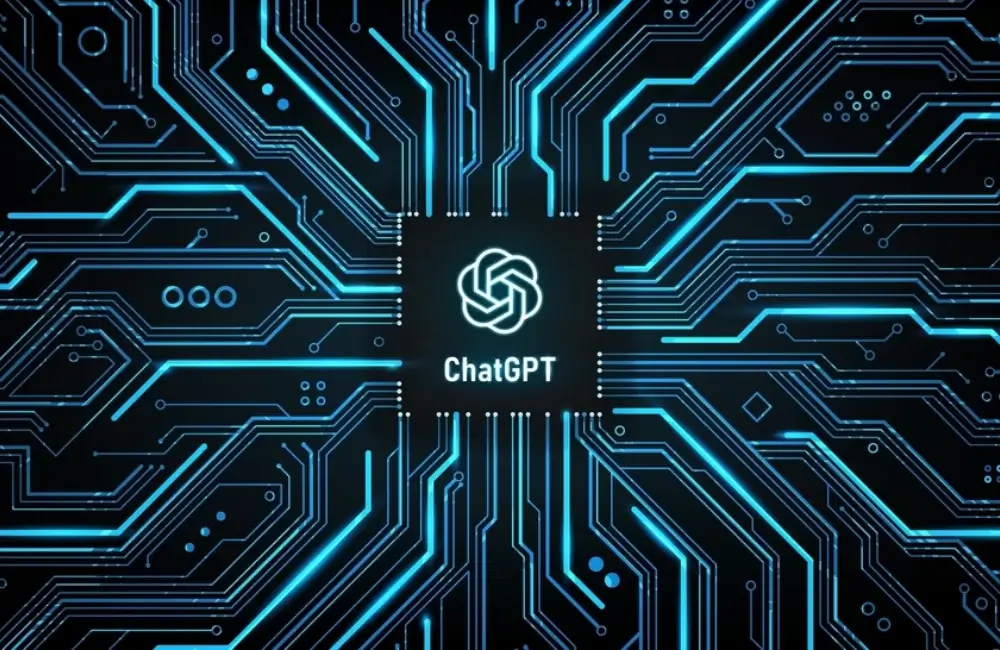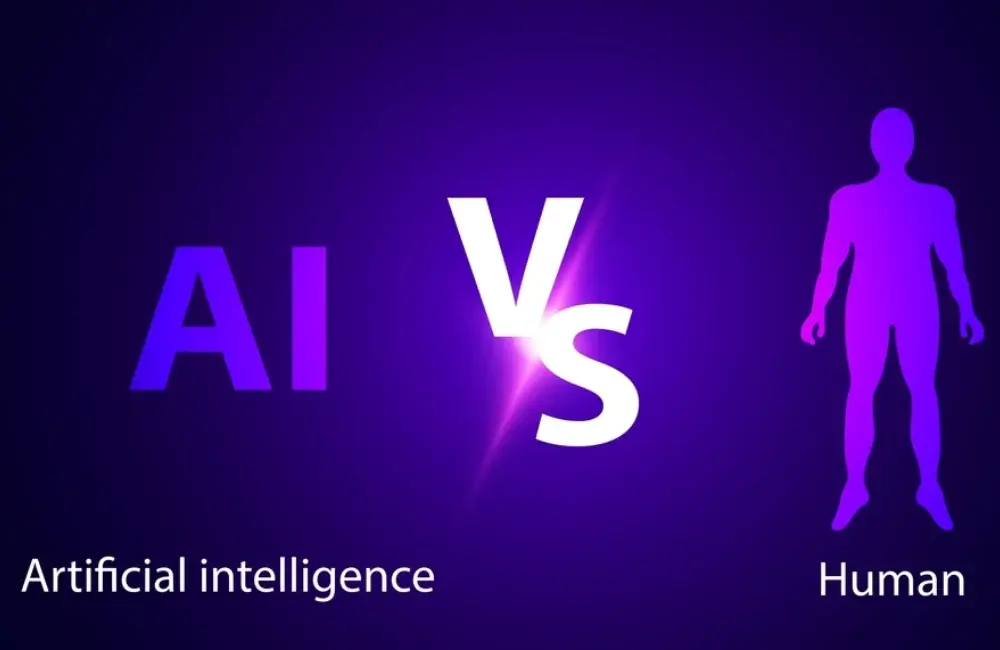

In recent years, artificial intelligence has made remarkable progress in natural language processing, leading to the development of sophisticated language models like ChatGPT. As these models become more advanced, concerns about their potential impact on the job market have arisen. This blog post aims to explore the question of whether ChatGPT will take over human jobs and identify the professions that are most at risk in this rapidly evolving landscape.

ChatGPT is an advanced language model developed by OpenAI. It is an emerging technological trend that is quickly gaining momentum in the digital world. At its core, ChatGPT is an artificial intelligence (AI) model built to engage in natural language processing. This technology is being developed through continuous research and development to make communication between humans and machines more seamless.
It is trained using vast amounts of text data to generate human-like responses to given prompts or questions. It employs deep learning techniques, particularly a transformer architecture, to understand and generate coherent and contextually relevant text.
In the future, ChatGPT will transform the way we interact with machines and automation systems in our everyday lives. However, the rise of this technology is also expected to impact the job market. While some fear that ChatGPT could replace certain human jobs, others see it as an opportunity to create new job roles in the AI and IT sectors.
Overall, ChatGPT is an exciting development that has the power to revolutionize various industries and transform our day-to-day experiences with technology.
ChatGPT works by processing input text and predicting the most appropriate response based on patterns and information learned during its training. It breaks down the input text into smaller segments, called tokens, and uses attention mechanisms to understand the relationships between these tokens. This enables it to generate text that is contextually coherent and aligned with the given prompt.

ChatGPT has demonstrated impressive capabilities in natural language understanding and generation. It can provide informative and context-aware responses on a wide range of topics. Moreover, it can interact with humans in a way that simulates real communication. It owes this capability to artificial intelligence and high-speed processing power. The technology enables it not only to understand human language but also to interpret and respond to it within fractions of a second.
Despite its many capabilities, ChatGPT does have limitations, especially when it comes to emotions and intuition. Unlike humans, it does not have instincts to guide its responses. As a result, its responses can at times seem stilted or mechanical.
In some instances, it can sometimes produce incorrect or nonsensical answers, be sensitive to slight changes in input phrasing, and may exhibit biases present in the training data. It is important to be mindful of these limitations while utilizing ChatGPT's capabilities.
However, with continued development and refinement, ChatGPT has the potential to revolutionize the way we interact with technology.

AI apps have made a significant impact on job industries globally. With the increasing popularity and usage of AI, people have raised concerns about their job security and whether they will become obsolete. While the answer to these concerns is not straightforward, it cannot be denied that AI has revolutionized the way we work. Here are some ways AI has influenced our working practices:
One of the concerns surrounding ChatGPT and similar AI technologies is the potential for automation and subsequent job displacement. Tasks that involve routine and repetitive processes, such as customer support or data entry, could be automated by AI systems like ChatGPT, leading to a decrease in demand for human workers in these areas.
While automation may lead to job displacement in certain sectors, ChatGPT also has the potential to enhance productivity and augment human jobs. By automating mundane and time-consuming tasks, it frees up human workers to focus on more complex and strategic aspects of their work. ChatGPT can assist professionals by providing them with relevant information, aiding in decision-making processes, and increasing overall efficiency.
Rather than replacing humans, ChatGPT can function as a valuable collaboration tool. Human-AI collaboration allows individuals to leverage the strengths of both humans and AI systems. By working together, humans can provide the critical thinking, emotional intelligence, and ethical judgment that AI lacks, while ChatGPT can offer rapid information retrieval, language processing, and data analysis. This collaboration can lead to more innovative solutions and improved outcomes in various professional domains.

According to experts the following professions are most vulnerable to AI takeover as it can complete the involved tasks more rapidly and accurately than humans can:
Professions involving customer service and support, such as call centers or help desks, are at risk of being impacted by ChatGPT and similar AI technologies. ChatGPT can handle basic customer inquiries, provide information, and even troubleshoot common issues, reducing the need for human intervention in these roles.
AI models like ChatGPT are increasingly capable of generating coherent and contextually relevant text. This poses a potential risk to professions that rely heavily on content creation and writing, such as copywriters, content marketers, and journalists. While human creativity and nuance remain vital, AI systems can assist in generating initial drafts or basic content, potentially impacting the demand for human writers.
Tasks like data entry, record keeping, and administrative work that involve repetitive and rule-based processes are susceptible to automation. ChatGPT can process and analyze data, perform basic administrative tasks, and assist in managing information, reducing the need for human involvement in these routine tasks.

Rest assured, the professions of the following experts will not be replaced by AI technologies anytime soon:
Professions that require high levels of creativity and artistic expression are less likely to be significantly impacted by ChatGPT and AI systems. Fields such as fine arts, graphic design, music composition, and creative writing heavily rely on human imagination, emotional depth, and unique perspectives that AI models have not fully replicated. These professions emphasize the human touch and subjective interpretation, making them less susceptible to automation.
Professions that involve emotional intelligence, empathy, and caregiving are also less likely to be replaced by AI. Roles like therapists, counselors, social workers, and healthcare providers require human-to-human connection, active listening, and understanding of complex emotions. While AI can provide supportive tools, the human element remains essential in these professions.
AI systems have a limited capacity to solve problems that require advanced problem-solving skills, critical thinking and strategic decision-making. Although AI can assist in data analysis and information processing, it is the human element that is essential when dealing with complex scenarios or situations which are not easily defined. It is the human's ability to think critically, show creativity and adaptability to respond to changing conditions that will ensure its importance in high-level professions such as management consultants, research scientists, engineers and policy analysts. AI systems cannot replace these roles due to their lack of judgment, intuition and the capacity to navigate ambiguous situations with ease. The advantages humans have over AI is clear - without these characteristics many of the problems faced today would be too difficult to solve. Therefore, it is the combination of AI and human intelligence that will result in successful problem-solving.
This highlights how humans can leverage their intellectual capabilities with the help of AI, enabling them to push boundaries and explore possibilities beyond what was thought imaginable. By combining the strengths of AI and human intelligence, a new future of problem-solving is within reach. It is essential that professionals in these fields understand the importance of using both AI and their own skills to tackle complex situations and maximize their potential in this changing landscape. By leveraging the power of AI and investing in their own development, these professionals can stay ahead of the competition and remain relevant in the modern world.

As AI technologies continue to infiltrate every profession, the workers of tomorrow must adapt or become obsolete.
In the face of technological advancements like ChatGPT, individuals should focus on continuous learning and upskilling. By acquiring new skills and knowledge, professionals can remain relevant in the job market. Upskilling can involve learning how to work effectively with AI systems, understanding their limitations, and developing complementary skills that AI cannot replicate easily, such as creativity, emotional intelligence, and critical thinking.
As AI systems like ChatGPT take on more routine tasks, it becomes crucial for individuals to emphasize human-centric skills in their professional development. Skills like complex problem-solving, emotional intelligence, adaptability, and ethical decision-making will continue to be highly valuable. These skills allow professionals to excel in areas that require human judgment and interaction, where AI systems are limited.
As AI technology continues to evolve, many individuals may worry about losing their jobs due to automation. Instead of being concerned about potential displacement, it is important for professionals to embrace the opportunities available because of this technology and focus on higher-value tasks that leverage unique human abilities. With AI systems gradually automating mundane and repetitive tasks, people can redirect their efforts towards strategic planning, creative problem-solving, customer relationship management, and innovation. This shift in focus can lead to more intellectually stimulating and fulfilling roles. With AI technology continuing to advance rapidly, it is important that people take advantage of the opportunities created by automation and combine human intellect with advanced technologies to create a successful future.
The emergence of AI technologies presents new job opportunities that may not have existed before. Professionals can explore roles related to AI development, implementation, and maintenance. Additionally, the need for AI trainers, explanation experts, and ethical consultants is growing as organizations seek to ensure responsible and unbiased use of AI. By embracing these emerging opportunities, individuals can adapt and thrive in the changing job market.

As online communication continues to dominate our daily lives, ChatGPT has become increasingly popular for facilitating conversations across the world. However, with the convenience of this platform come ethical concerns and regulations that need to be addressed. One of the most critical considerations is the potential for misuse of ChatGPT by individuals who may use it for discriminatory or harmful purposes. Another issue pertains to ensuring that there is transparency in data usage and storage, which should be regulated to prevent data breaches or misuse. Additionally, it's essential to monitor the potential for bias in ChatGPT algorithms to ensure that the platform doesn't perpetuate systemic discrimination against marginalized groups. As such, ethical considerations and regulations must be put into place to address possible issues that may arise from ChatGPT and to ensure that it remains a safe and inclusive platform for all users.
As AI systems like ChatGPT become more prevalent, it is crucial to establish accountability and transparency frameworks. Developers and organizations should be transparent about the limitations and biases of AI systems, ensuring that users understand when they are interacting with an AI rather than a human. Additionally, mechanisms for addressing errors, biases, and potential harm caused by AI should be put in place to maintain ethical standards.
AI systems can inherit biases present in the training data, potentially perpetuating discrimination and unfairness. It is vital to address these biases and ensure that AI systems are designed and trained in a manner that promotes fairness and inclusivity. Careful data curation, bias detection, and mitigation techniques should be implemented to reduce disparities and ensure equitable outcomes.
To manage the impact of AI technologies on the job market and society at large, regulatory frameworks and guidelines need to be established. These guidelines should address issues such as job displacement, privacy concerns, algorithmic accountability, and the responsible use of AI. Collaboration between policymakers, industry experts, and AI developers is necessary to strike a balance between innovation and ethical deployment of AI systems.
While the rise of ChatGPT and other advanced language models has the potential to automate certain tasks, it is important to remember that these technologies are tools to augment human capabilities, not replace them entirely. Professions that involve creativity, emotional intelligence, and complex problem-solving are less likely to be impacted significantly. However, it is crucial for individuals and industries to adapt and embrace the changing landscape by upskilling, reskilling, and focusing on higher-value tasks. With proper regulation and ethical considerations, the integration of AI like ChatGPT can lead to a future where humans and machines work together to achieve greater outcomes.
Share